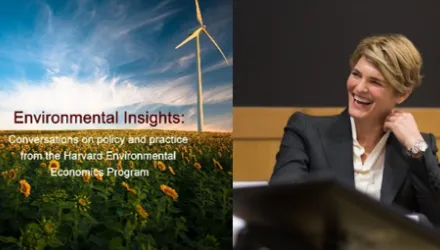Abstract
Over the last decade, carbon trading has emerged as the policy instrument of choice in the industrialized world to address global climate change. This paper argues that a transnational business coalition, representing mostly energy firms and energy-intensive manufacturers, actively promoted the global rise of carbon trading. In this process, business could draw on the support of government allies and business-oriented environmental groups, particularly in the UK and the US. Alongside its allies, the coalition had pivotal influence in the internationalization of carbon trading through the Kyoto Protocol, in the U-turn of the EU from sceptic to frontrunner on carbon trading and in the re-import of carbon trading to the US. While business could not prevent mandatory emission controls, it could critically affect the regulatory style of climate policy in favor of low-cost, market-based options.
Continue reading: http://www.mitpressjournals.org/toc/glep/11/2 (login required)
Meckling, Jonas. “The Globalization of Carbon Trading: Transnational Business Coalitions in Climate Politics.” Global Environmental Politics, May 2011





